GP News – Feb ’17
Contents
- Support your patients to get healthy with their free health coach
- Free interpreting service delivered by TIS National available to private medical practitioners
- Ordering viral hepatitis resources across NSW – new Treatment Update Sheets
- Letter from the Department of Veteran’s Affairs
- Paediatric Asthma Emergencies Surge in February – Are Your Patients Back-to-School Ready?
- NSW Health reports first heart patient with M chimaera infection
- GP participation opportunity University of New England study
- National General Practice Accreditation Scheme
- National Cancer Screening Register update
- Macquarie University survey for GPs
- New Choosing Wisely report: Strong appetite for reducing inappropriate healthcare

Support your patients to get healthy with their free health coach
The Get Healthy Information and Coaching Service®, developed by NSW Health, provides adults with free, confidential one-on–one phone coaching to encourage people make lifestyle changes in relation to:
- Healthy eating
- Physical activity
- Alcohol reduction
- Achieving and maintaining a healthy weight
- Achieving a healthy weight gain in pregnancy.
Over the course of 10 to 13 calls, qualified health professionals support participants to set their individual lifestyle goal, overcome barriers and setbacks, maintain motivation and achieve long-term lifestyle changes.
An independent evaluation found that participants who completed the coaching program lost on average 3.8 kgs and 5.1cm off their waist which significantly reduces their risk of developing cardio vascular disease, type 2 diabetes, musculoskeletal disorders and some cancers.
General Practitioners and Health Professionals are encouraged to refer patients they think would benefit from the Get Healthy Service.
Referral forms for General Practitioners and Health Professionals (e.g. Practice Nurses, Physiotherapists, Occupational Therapist, Dietitians, Pharmacists) can be found at: www.gethealthynsw.com.au/refer-your-patients
Referring is easy.
- Fax, email or post completed referral forms to the Get Healthy Service*
With the patient’s permission, you will be kept informed of their progress with the provision of reports from the Service at three and six month intervals. - Or advise patients to self-refer by phoning 1300 606 256 or registering online: www.gethealthynsw.com.au
For more information on the Get Healthy Information & Coaching Service visit: www.gethealthynsw.com.au
*Where possible, SNPHN promotes the use of Secure Messaging for sending of health referrals in line with RACGP’s position statement on the use of secure electronic communication within the health care system.

Free interpreting service delivered by TIS National available to private medical practitioners
Private medical practitioners (GPs and some medical specialists providing Medicare-rebateable services in private practice) and their reception staff can access the Free Interpreting Service to communicate with patients who have limited English. A list of eligible medical specialists can be found here.
Despite the Free Interpreting Service being readily available and accessible, research undertaken by the Australian National University Medical School suggests that less than 1 in 100 medical consultations use the Free Interpreting Service for patients with limited English proficiency. This may be because patients opt for family/friends to interpret for them, or due to the misconception that registering for the service is time consuming and administratively burdensome. This can have serious risks for both the patient and the doctor. CLICK HERE for a summary of the research.
TIS National provides an eligibility calculator to assist in determining eligibility. You can register with TIS National by completing the client registration form at https://tisonline.tisnational.gov.au/RegisterAgency.

Ordering viral hepatitis resources across NSW – new Treatment Update Sheets
If you’re in NSW and need free information resources for people with Hepatitis B or C, please go to the Hepatitis NSW Resources Library.
- No log-in required
- Simple, three step process
- Faster ordering
- Quality information resources*
Treatment Update Sheets provide an overview of the latest treatments for hep C. These sheets are suitable as handouts to clients and patients. They have been amended to take into account the current options for Genotype 4.
Please order supplies online (above) or using the faxback order form:
https://www.hep.org.au/wp-content/uploads/2017/01/FaxOrderForm.pdf
Important: Please ensure that you discard any previous versions of the Treatment Update Sheets.
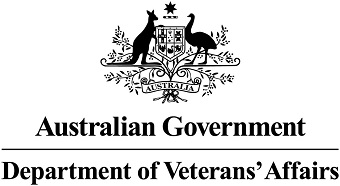
Letter from the Department of Veteran’s Affairs
This letter is to bring to your attention information that may assist you in managing patients who are current or former members of the Australian Defence Force and who may have experienced sexual or physical abuse during their defence service.
The Australian Government has implemented a number of measures to better assist members or ex-members of the ADF who experienced abuse during their defence service. The Department of Veterans’ Affairs (DVA) administers the Non-Liability Health Care (NLHC) program which provides for treatment of certain mental health conditions.
Whilst care for survivors of abuse is a particular focus, anyone who has ever served in the permanent forces of the Australian Defence Force is now eligible for free treatment through the NLHC program, for certain mental health conditions, without needing to prove that the condition is linked to service, and without needing to lodge a compensation claim.
The mental health conditions covered under NLHC are:
- post-traumatic stress disorder (PTSD);
- depressive disorder;
- anxiety disorder;
- alcohol use disorder; and
- substance use disorder.
DVA will need to confirm the applicant’s identity and service, but NLHC may be accessed by current or former ADF members without the need to complete an application form – an emailed or phoned request is all that is required (details below).
Further, a diagnosis of one of the above conditions is no longer required prior to being approved for NLHC treatment. However, a diagnosis from a general practitioner, psychiatrist or clinical psychologist must be provided to DVA within six months of approval. This allows time for a thorough mental health assessment and diagnosis process, and for treatment to commence. Once a diagnosis of one or more of the above mental health conditions is provided, treatment approval becomes permanent.
Treatment is provided through a DVA Health Card – For Specific Conditions (White Card), which also allows the holder to access counselling services through the Veterans and Veterans Families Counselling Service – VVCS.
Health providers who would like to find out more about NLHC, or confirm a White Card holder’s eligibility for treatment, can call the DVA Health Provider Line on 1300 550 457 (Metro) or 1800 550 457 (Non Metro). To assist a patient to make an application, please email NLHC@dva.gov.au or phone 133 254 (metropolitan) or 1800 555 254 (regional).
Veterans who are in need of immediate mental health and wellbeing support can seek help from the VVCS. The VVCS provides free, confidential, nation-wide counselling and support for veterans, eligible current and former ADF members and their families and can be contacted at any time on 1800 011 046.
CLICK HERE to view pdf of letter.

Paediatric Asthma Emergencies Surge in February
Ahead of the start of the 2017 school year and the ensuing surge in asthma emergencies, the National Asthma Council Australia encouraged doctors to check their paediatric patients’ asthma. Read the media release below for some clinical tips on managing paediatric patients.
Media Release
23 January 2017
National Asthma Council Australia
Are Your Patients Back-to-School Ready?
Ahead of the start of the 2017 school year, the National Asthma Council Australia is asking doctors to ensure that their paediatric asthma patients are ready for a safe return to the classroom.
The ‘February Epidemic’, a big asthma spike in children immediately after school goes back, is a well-recognised and documented phenomenon.
Studies in Australia and the UK have shown asthma hospitalisations surge during the first month of the school year, with cases in Australia rising as much as threefold in children aged five to 14 years and doubling in pre-schoolers. While increased risks have also been recorded at the start of subsequent school terms, the February spike is by far the most significant.
National Asthma Council Australia spokesperson, Professor Adam Jaffé, respiratory paediatrician, said that in school settings factors such as sharing a new set of bugs which can trigger colds and respiratory infections, less strict asthma management over the holidays and a change of environment or allergens can trigger asthma in children and teenagers.
“The impact of asthma flare ups in the first few weeks of the first school term can be reduced if children and their parents and carers are properly prepared.
He urged doctors to check their paediatric patients’ asthma, including reviewing their device technique and ensuring their asthma action plan is up to date.
“It’s important that doctors remind parents to share their child’s asthma action plan with school teachers, after school carers and sport coaches so they can be prepared should an asthma flare-up occur. “
The National Asthma Council Australia has issued the following clinical tips, which support best practice asthma care, to help doctors prepare paediatric patients for the new school year:
- When paediatric patients known to have asthma present for any reason, ask about asthma control and being ready for asthma when at school;
- Make sure each child has an up-to-date written asthma action plan and the child and/or parents understand how to follow it;
- Remind parents to get their child back into their asthma routine before the school year starts, including taking preventer medications every day, if prescribed;
- Recommend a full asthma check-up before the school year starts, or at least before activities like sports lessons start to make sure all is as well as can be; and
- Take the opportunity to check that the child and/or parents are using inhalers correctly.
Click here to read the full media release from National Asthma Council Australia.
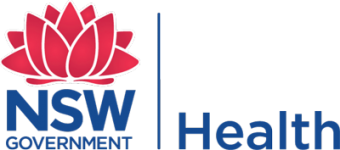
NSW Health reports first heart patient with M chimaera infection
NSW Health has confirmed the first Mycobacterium chimaera case in the state following exposure to the rare infection from open heart surgery equipment.
Last year NSW Health contacted patients who may have been exposed to the M chimaera infection from open heart surgery equipment used in four NSW public hospitals. The equipment, used in countries around the world, is thought to have been contaminated during manufacture.
Since then one NSW patient, a woman in her 80s who underwent surgery at Prince of Wales Hospital in 2015, has developed the infection.
NSW Chief Health Officer, Dr Kerry Chant, said the patient has since been treated with the appropriate antibiotics and is responding well.
“NSW Health responded to international advice and sent letters to patients who underwent open heart surgery between January 2012 and August 2016 at Prince of Wales, St George, The Children’s Hospital at Westmead, or Sydney Children’s Hospital Randwick. These letters informed patients about the risk, symptoms and what to do if concerned,” Dr Chant said.
“We’re asking patients to particularly watch out for the following symptoms: persistent fevers, increasing or unusual shortness of breath, and unexplained weight loss.
“When we were notified of this infection risk to patients NSW Health replaced and removed from service the machines used in the four public hospitals, issued alerts to the community and doctors, and circulated new national guidelines for the equipment.”
Dr Chant said experience overseas had shown that when an M chimaera case is reported in a facility it may signal an increased risk to other patients who had heart surgery in that facility.
“We’re now providing updated advice to all GPs and relevant specialists,” Dr Chant said.
“NSW Health is continuing to monitor heart surgery patients in NSW and keep abreast of international responses and advice.
“Worldwide, around 70 heart surgery patients have contracted this infection, with only two patients in Australia, including this NSW case.”
Patients seeking further details can contact the following information lines:
- Sydney Children’s Hospital Network – 02 9845 3442 (8.00am – 5.00pm, excluding weekends and public holidays)
- South Eastern Sydney Local Health District –1800 875 526 (8.00am – 5.00pm until Friday 3 February).
For further information please see the NSW Health Fact Sheet.
Media contact: NSW Health Public Affairs Unit 02 9391 9121, after-hours 02 9962 9890 or email media@doh.health.nsw.gov.au.
Click here for further information for NSW General Practitioners.
Click here for the full media release.
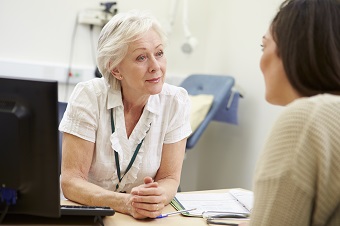
GP participation opportunity University of New England study
The University of New England is undertaking some research which looks at understanding General Practitioners’ experiences and difficulties in treating psychological injuries in NSW under WorkCover and CTP.
The researchers are aiming to interview between 6-8 GPs and offer an honorarium of $250. Each confidential interview would take between 45-60 minutes and can be undertaken face to face or via teleconference. If the GP is based in Sydney, the researcher will come and meet with them at a time convenient to the GP.
The title of the research is Evidence-based practice used by psychologists treating secondary psychological injuries within the State Insurance Regulatory Authority governed frameworks (i.e. Workers Compensation Insurance and Motor Accidents Compulsory Third Party Insurance).
The aims of the research are:
- to identify barriers to psychologist’s use of evidence based practice;
- to propose strategies to overcome these barriers; and
- to explore whether client characteristics may impact psychologist practice and treatment of psychological injuries.
Click here for the information sheet.
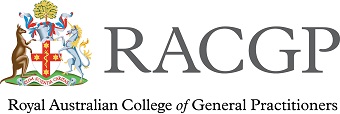
National General Practice Accreditation Scheme
The Australian Commission on Safety and Quality in Health Care, in collaboration with the RACGP, developed the National General Practice Accreditation Scheme (the Scheme), which commenced on 1 January 2017. The Scheme aims to:
- provide greater choice for practices seeking accreditation
- improve support programs for implementation of accreditation
- provide practices with access to national data on accreditation performance and enable benchmarking.
Under the Scheme, general practices seeking accreditation must be assessed by an approved accreditation agency. The contact details of the approved agencies are listed in the link below.
General practices due for accreditation before 30 June 2017 will maintain existing arrangements with their accreditation agency. From 1 July 2017, practices undergoing accreditation will need to ensure they use one of the approved accreditation agencies. Further information on the Scheme is available
at www.safetyandquality.gov.au/our-work/general-practice-accreditation/#The-National-General-Practice-Accreditation-Scheme.
The RACGP is developing the 5th edition of the RACGP Standards for general practices (the Standards) which will be released in October 2017. Practices will be able to use either the 4th or 5th edition Standards up to October 2018. From November 2018, all practices undergoing accreditation will be assessed against the 5th edition Standards. Further information on the development of the Standards is available at www.racgp.org.au/standardsdevelopment.
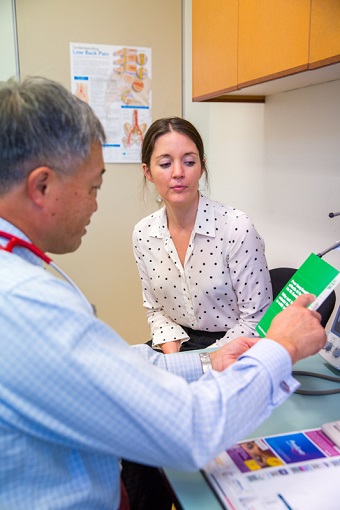
National Cancer Screening Register update
A letter to General Practitioners, Primary Care Practitioners and Practice Managers, from Jo Silva and the NCSR team
I am writing to introduce myself and to let you know work is currently underway on the National Cancer Screening Register a Commonwealth Government initiative being implemented by Telstra Health. I am a GP with my own practice in Point Cook, I am a GP Advisor at Western Health Victoria and Telstra Health’s GP liaison in delivering the Register.
Our role
As GPs, Primary Care Practitioners and Practice Managers, we play a pivotal role in supporting our patients to take up the benefits of large public health programs like cancer screening.
What is the National Cancer Screening Register?
In May 2016 the Department of Health appointed Telstra Health to develop and operate the National Cancer Screening Register (the Register) to support the renewed National Cancer Screening Program and acceleration of the National Bowel Cancer Screening Program.
The Register is expected to manage the cancer screening records for more than 11 million Australians, replacing the existing National Bowel Cancer Screening Program Register and up to eight separate state and territory-based cervical screening registers.
On 13 October 2016 the National Cancer Screening Register Bills 2016 were passed through the Australian Parliament paving the way for operation of the Register and data migration from the existing cervical and bowel screening registers.
How will the new Register help?
Approximately 4,000 people die from bowel cancer and 250 women die from cervical cancer each year in Australia. Building on Australia’s capacity to screen for and prevent these cancers remains a national priority.
The Register will create a single record for each participant in our national screening programs across the country and will capture screening events regardless of the location in which they occur.
GPs will be able to use their clinical software, such as Medical Director or Best Practice, or an online portal at any time to quickly and easily identify what screening is due or overdue, results requiring further action and historical test results. Your patients will also be able to use the participant portal to update personal information and view when their last screening occurred. GPs will be able to order FOBT kits using the portal and an Australian-based contact centre will be available for Register support.
The Register will invite participants to undertake an initial screen and provide reminders about follow up screens for participants and their practitioners. This will help ensure participants continue along the screening pathway when their test results are positive. The Register will have the capability to utilise a variety of communication methods including a web portal, email, SMS communication as well as traditional mail correspondence. The form of communication will depend on the type of information that needs to be communicated and your, and your patient’s preference.
The team
The Register team is led by Professor David Ashbridge, a General Practitioner and Health Executive. Our team also includes medical practitioners, cancer screening program experts, health information managers and epidemiologists.
Engagement to date
We have commenced consultation with peak bodies including the Royal Australian College of General Practitioners and the Australian College of Rural and Remote Medicine to ensure the Register is built to meet the needs of GPs. We will continue to liaise with these and other organisations as we develop training for GPs on notifying the Register and information on new technologies that will be available with the Register, such as electronic forms embedded in GP software.
The Register is on track to support the National Bowel Cancer Screening Program from 20 March 2017 and the National Cervical Screening Program from 1 May 2017. This coincides with the introduction of the new MBS items supporting 5-yearly HPV testing and reflex LBC tests.
Source: Jo Silva and the NCSR team
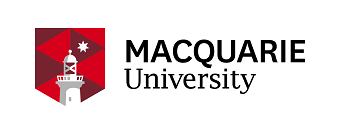
Macquarie University survey for GPs
We need your help to improve the effectiveness of drug-drug interaction alerts in electronic prescribing systems. This study is being conducted by researchers at Macquarie University, in collaboration with Australian hospitals, GPs and pharmacists.
The purpose of this survey is to identify the best way to present information to doctors and pharmacists in a drug-drug interaction alert.
How can you help? Please complete the 4-question survey below by 1 March, 2017.
Click here to take the survey.
If you have any questions about the study, please contact Dr Melissa Baysari on (02) 9850 2416 or at melissa.baysari@mq.edu.au.

New Choosing Wisely report: Strong appetite for reducing inappropriate healthcare
Choosing Wisely Australia released a new report on the campaign’s implementation since launching last year. The report demonstrates strong engagement by Australia’s medical profession and consumer advocates and a strong appetite in the community for an ongoing conversation about the appropriate use of tests, treatments and procedures.
For more information on which tests, treatments and procedures to question, visit http://www.choosingwisely.org.au/recommendations.
[contentblock id=1 img=gcb.png]
